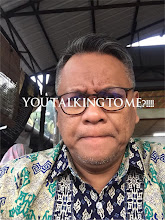Reading is very much related to language. How ?
a) We use it for a purpose (for both language and
reading)
b) It makes sense in a context (for both language and
reading)
Language is the most important resource for any readers.
We read for different purposes:
—A man at the airport looking the departure time screen
—A student in a library gazes intently at a textbook, occasionally making notes
Purposes are linked to physical setting
(i.e. we cannot identify the purpose for the activity without some knowledge of the setting)
DEFINITION OF READING
In defining reading, apart from looking at the purpose and the physical setting of reading, we have to take into consideration who is speaking and to whom and in what set of circumstances.
 Consider what the question ‘Can you read this?’ would mean in each situation:
Consider what the question ‘Can you read this?’ would mean in each situation:a) An adult is having a sight test at an optician’s and is asked to read a list of words.
— ‘Are you able to identify the words on the cards?’
b)A child is shown a flash card with the word ‘apple’ on it by the teacher.
—Can you decode the text? – Read aloud without meaning
c)An Islamic religious leader asks a congregation of boys to read aloud the Koran.
—Can you recite the verses correctly?
d)The owner of a new computer asks an experienced friend about instructions in the manual.
Can you interpret the manual?
Reading in general is defined as interpreting, meaning - reacting to a written text as piece of communication; in other words, we assume some communicative intent on the writer’s part which the reader has some purpose in attempting to understand.

WHAT BEING A READER MEANS
Experienced readers make judgments during activity about the degree of care and attention which the material warrants.
Effective reading means a flexible and appropriate response to the material in hand, and this is always guided by the reader’s purpose. (Readers have options e.g. option to give up reading)
Which of the following you carefully scrutinize, cursory read, discard?
—Agreement / contract
—Ingredients of a food product
—Road signs
—SMS
—Exam instructions
—Letter asking for donation
—Sport news
—Political news
News on celebrities
How we response to a reading material and the results of our reading activity will depend on:
—Time
—Attention
—Energy
—Purpose
READING PURPOSE
There are some reasons for reading :
1) Reading for survival
2) Reading for learning
3) Reading for pleasure
—
Survival
—Life and Death : e.g. A STOP sign
—Ladies or Gents
—Exit , Emergency Exit
—Life and Death : e.g. A STOP sign
—Ladies or Gents
—Exit , Emergency Exit
Serves immediate needs and wishes
Learning
Extending our knowledge
Goal oriented
Goal oriented
Does not necessarily take place in academic institutions only
Pleasure
—
—
Done for its own sake
We do not need to do it if we do not want to
Literature – meant to be for pleasure reading. Nevertheless, it is required reading for examination
Educational practices neglect the pleasure principal
We do not need to do it if we do not want to
Literature – meant to be for pleasure reading. Nevertheless, it is required reading for examination
Educational practices neglect the pleasure principal
Important product of reading for pleasure is FLUENCY (speed and ease of reading)
If readers do not read for pleasure in L1, very unlikely to do so in L2 or FL
If readers do not read for pleasure in L1, very unlikely to do so in L2 or FL
A Vicious Cycle
If we do not have fluency in reading we will not be motivated to read. Not being motivated does NOT help to build fluency.
Source: Wallace, C. (2003)
Notes prepared by Leele & Hanim, adapted by Izaham

2 comments:
Mr. Izaham, I'm from your TSL591 class. May I know what you mean by "Not being motivated does help to build fluency."? Because i thought that being motivated is what helps to build fluency. I'm kind of confused. Tq.
Sorry it should be 'does NOT help' to buil fluency. Thank you for pointing that out
Post a Comment